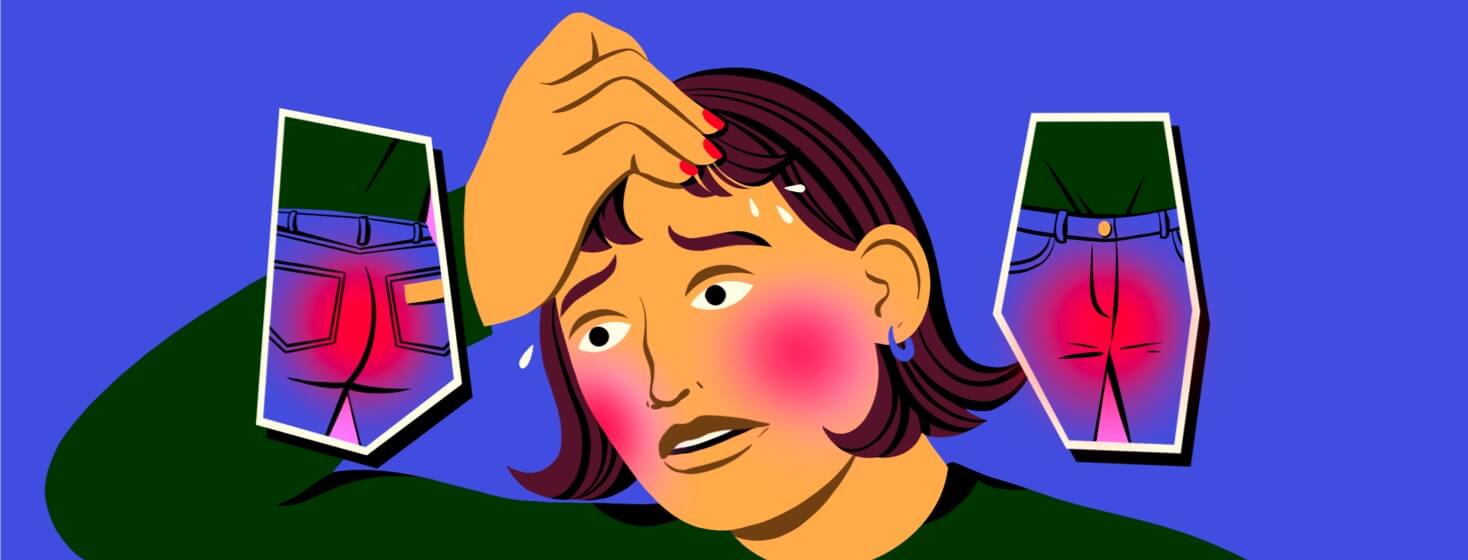Awkward Moments: Tips for Talking About Genital Psoriasis
Psoriasis leaves us in a lot of physical discomforts. What we don't mention that often is the emotional discomfort we experience. The rude stares, managing unwanted comments. There is so much internalizing. These kinds of uncomfortable feelings also come up at the doctor.
We want to hide our psoriasis, to have it go away. Talking about it openly at the doctor can be difficult - especially when we're seeking treatment or relief in personal areas. I'm talking about genital psoriasis.
Genital psoriasis is not a walk in the park
This type of psoriasis is more at risk of becoming infected and is seriously painful. It's important you talk to your doctor about every place on your body where psoriasis presents itself. Awkward or not.
I didn't say it would be easy but it is important. While I am a woman, and this article is written from a woman's perspective. This type of psoriasis - and the awkward moments that come with it - applies to both men and women.
Taking a look at inverse psoriasis
Inverse psoriasis commonly affects the skin folds - and the sensitive areas we are talking about here. Yes - armpits and the backs of knees but also breasts, the groin area - including the penis and vagina. Psoriasis can also appear in the gluteal cleft, also known as your butt crack.
All of these places are seemingly unmentionable. I am here to say it's not impossible and should be talked about.
Keeping all of yourself healthy is critical when you have this skin disease. Allowing your skin to hurt you is not something you have to accept. There are many over-the-counter as well as prescriptions that can be used to treat these sensitive areas.
Genital psoriasis is difficult to discuss - but not impossible!
Let's give a real-world example in the hopes it may bring you clarity. I have a single male friend that lives with inverse psoriasis. He recently told me that he experiences intense pain when he showers, bathes or works long hours. Enough pain brings him to tears.
He told me he never felt comfortable talking about it. I suggested writing down all the things that bothered him about these areas. Once he did. I helped him compose a note to give to his doctor. The message was well received, and the doctor started the conversation.
Doctors are your resource to help. Tell them what you're feeling in a way that is right for you. They have access to ideas on how to make you more physically comfortable. The conversation will not be a difficult one, but your health and comfort are more important.
My own personal journey with inverse psoriasis
Personally, I have had psoriasis on my labia (lips to my vagina), breasts, armpits, nipples, and butt crack. My psoriasis has itched, burned, stung, and caused skin breakdown over the 26 years I have had it. The skin has been rubbed by clothing, movement, and different materials.
My physician advised me to wear soft clothing, lightweight and breathable. I was given an antifungal cream to use between my legs and armpits. Sometimes, the area where my belly hangs (pannus) needs fungal cream too.
Let's talk germs
Simply going to the bathroom puts inverse and genital psoriasis at risk for infection. Our sensitive skin is exposed and sometimes cracked. There have been times when I have scratched my skin raw due to simply itching in these sensitive places. When you have such an urge, it is tough to stop.
Flaking is an issue. Once a plaque was so thick it impacted my urination flow. As gravity went, it became a source of infection. A fever and smell caused me to see my doctor and discuss it.
Germs hide in both urine and stool. Since that point in my life, I have learned warning signs and when to prioritize seeing my doctor. You might not be able to completely keep yourself from getting infections, but you can help control them by advocating for yourself.
Still hesitant to talk to your doctor?
My primary doctor once told me that he isn't grossed out by what his patients tell him. Helping yourself to help your doctor is all a part of managing your health. This same doctor told me he felt that people who are afraid to speak up cause more damage than good.
They can't help you if you don't tell them. And doctors are there to help you. Tell them you are having issues with pain and redness in sensitive spots. Ask them if there is anything they recommend for products for inverse psoriasis or psoriasis around the groin.
You are not the only person to experience this, I promise. Think about my own shared experiences. Consider bringing a copy of this article to help steer the conversation.

Join the conversation